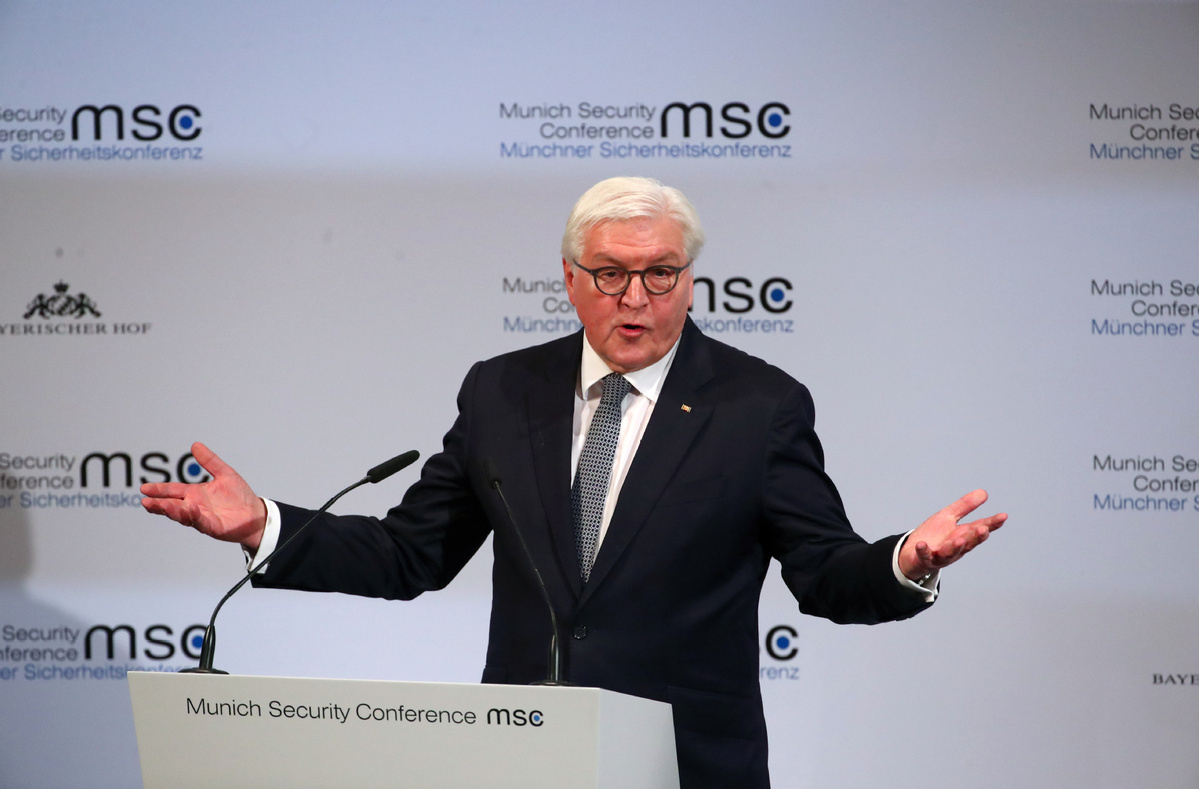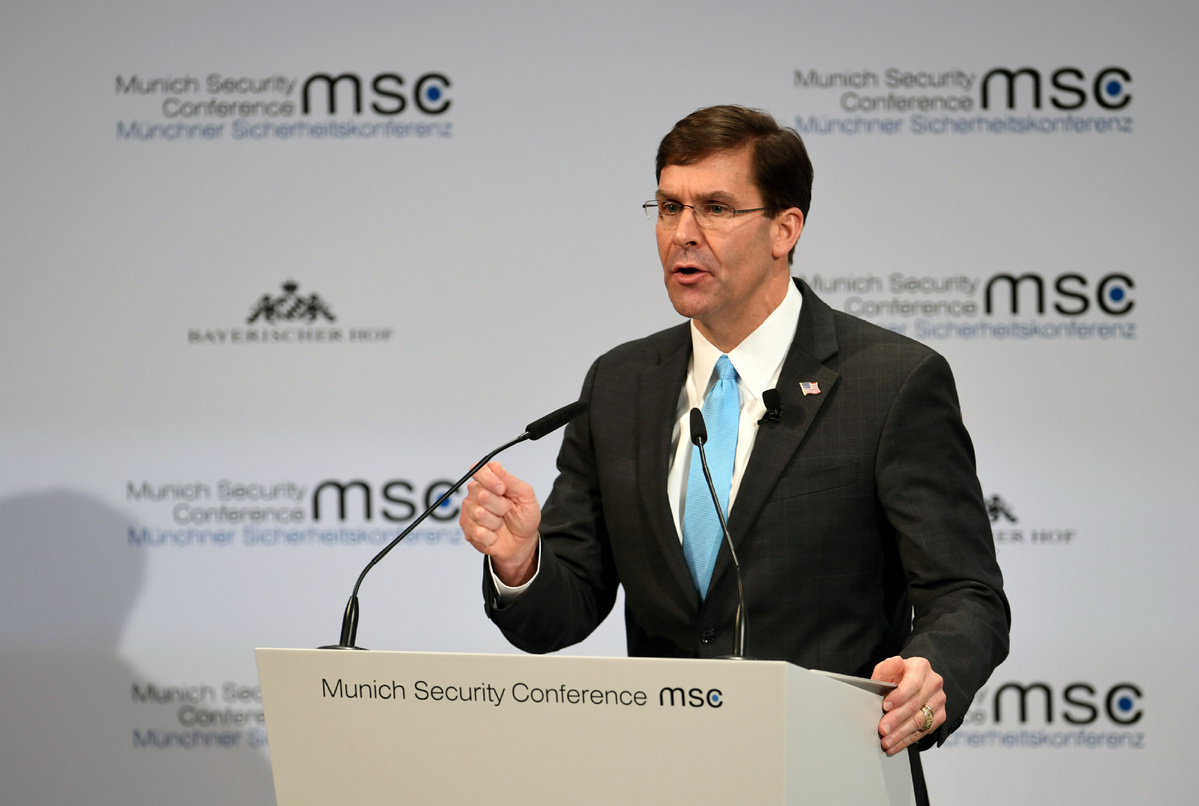
German President Frank-Walter Steinmeier speaks during the Munich Security Conference in Munich, Germany Feb 14, 2020. (Photo: Agencies)
In his opening remarks at the 56th Munich Security Conference on Friday, German President Frank-Walter Steinmeier warned of "an increasingly destructive dynamic in global politics". It was a worthy alert.
The idea of the competition of great powers is not just speculation, he cautioned, "it also marks the new reality around the world".
US Defense Secretary Mark Esper highlighted the prescience of Steinmeier's caution in his speech at the conference on Saturday when he described the times as "an era of great power competition" and identified China as "the Pentagon's top concern".

US Defense Secretary Mark Esper speaks at the annual Munich Security Conference in Germany Feb 15, 2020. (Photo: Agencies)
And it was not just Esper, many other attendees from the United States, from Secretary of State Mike Pompeo to House Speaker Nancy Pelosi to Senate Judiciary Committee Chairman Lindsey Graham, seemed to be in Munich on a mission to scare the US' allies away from China, its 5G equipment provider Huawei first and foremost.
While the US assault against Huawei and fear of Chinese overtures to traditional allies undermining US leadership are obvious, the truly unsettling message from Munich lies in the extent to which the US is trying to dictate how countries should co-exist.
While the German president criticized the US for rejecting "even the idea of an international community", the US defense secretary appealed for the "international community" to "wake up to the challenges" from China, which he claimed was seeking "to undermine and subvert" the international system. Clearly the latter's international community is a lot more exclusive than the former's.
Equally apparent was how far apart Beijing and Washington are in their views of each other.
The Chinese approach to development and governance, which Chinese Foreign Minister and State Councilor Wang Yi said is widely praised and demonstrates the awe-inspiring advantages of the Chinese system, is precisely what Washington is warning its allies against.
The root cause of that unnecessary warning, Wang said, lies in the fact that some people in the US are reluctant to accept the rapid development and revitalization of China.
The world is no longer the unipolar one it used to be. And the world order is not yet what Russian Foreign Minister called for in 2017, one that is "post West". But the Munich security report is correct in describing our time as "less Western". And that is a trend that will become more evident as the world is becoming multipolar.
The US is presenting international relations as a simple us or them choice, countries are either with the US or against it.
But like so much of what the US representatives claimed at the conference, that is a false proposition. No one benefits from a world where countries have to choose between being a full-fledged ally of the US or engaging in a far-reaching economic partnership with China.
The top Chinese diplomat's recommendation of "a community of shared future for humanity" as a "Chinese solution", may meet a cold shoulder in Washington, but other countries should lend it an ear.


